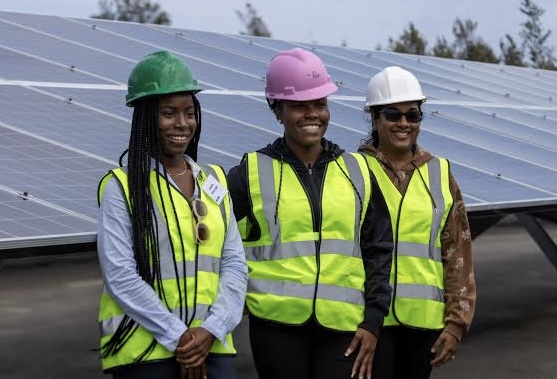Key Points
- African women drive clean energy solutions through innovation and leadership.
- Gender equity in renewable energy enhances Africa’s sustainable development.
- Women face barriers in STEM access and renewable energy financing.
The renewable energy sector is essential for tackling climate change, energy poverty, and sustainable development issues. Africa, possessing extensive unexploited solar, wind, and hydro resources, is at the vanguard of this energy change. Women frequently encounter obstacles to complete engagement in this expanding field. Empowering African women in renewable energy is crucial for achieving gender equality and enhancing the sector’s socio-economic effect.
Africa’s renewable energy potential and gender disparities
Africa possesses substantial renewable energy potential, particularly in solar energy, which has the capacity to supply power to a significant portion of the continent.
The International Renewable Energy Agency (IRENA) estimates that Africa has the potential to produce about 310 gigawatts of renewable energy by 2030. Energy poverty continues to be a critical concern, with 595 million individuals devoid of electricity access as of 2021. According to ifc, women are disproportionately impacted, as they frequently depend on traditional biomass fuels for cooking and heating, hence exacerbating health hazards and constraining economic options.
Although women are key energy consumers in households, they encounter systemic obstacles to engaging in the renewable energy sector. The African Development Bank (AfDB) observes that women are inadequately represented in technical jobs and decision-making positions in the business. Addressing this gender disparity is not merely an issue of fairness; it also improves the effectiveness and scope of renewable energy projects.
Contributions of Women and ongoing challenges
African women have exhibited leadership and creativity in renewable energy. The Solar Sister initiative educates and empowers women entrepreneurs to distribute solar-powered items in rural areas.
This program has impacted over 1.5 million individuals while generating business opportunities for numerous women.
According to modern ghana, women-led firms, such as Ghana’s DENG Solar, are pioneering off-grid solar initiatives, delivering clean energy to underserved areas.
Notwithstanding these achievements, difficulties endure. A significant number of women are deprived of STEM education, technical training, and financial means.
A research by the International Finance Corporation (IFC) indicates that merely 35% of women in Africa have access to formal financial services, constraining their capacity to initiate or expand energy-related firms. Social conventions and gender prejudices impede women’s advancement into senior positions within the energy sector
Conclusion: promoting gender equity in renewable energy
African women have demonstrated their capacity to advance the renewable energy sector; nonetheless, they continue to be under-represented due to institutional obstacles.
Empowering women necessitates a comprehensive strategy, encompassing enhanced access to STEM education, gender-sensitive legislation, and inclusive financial systems.
Initiatives such as the Women in Renewable Energy Network (W-REA) and specialized mentorship programs are essential for cultivating an inclusive sector.



